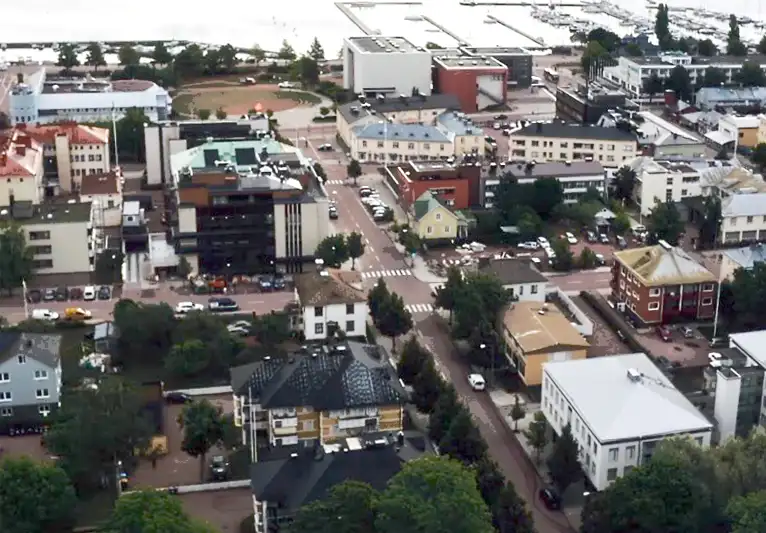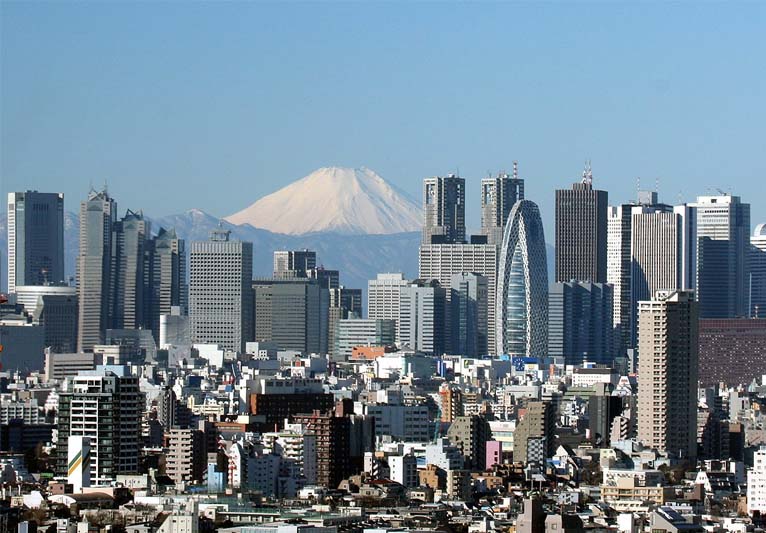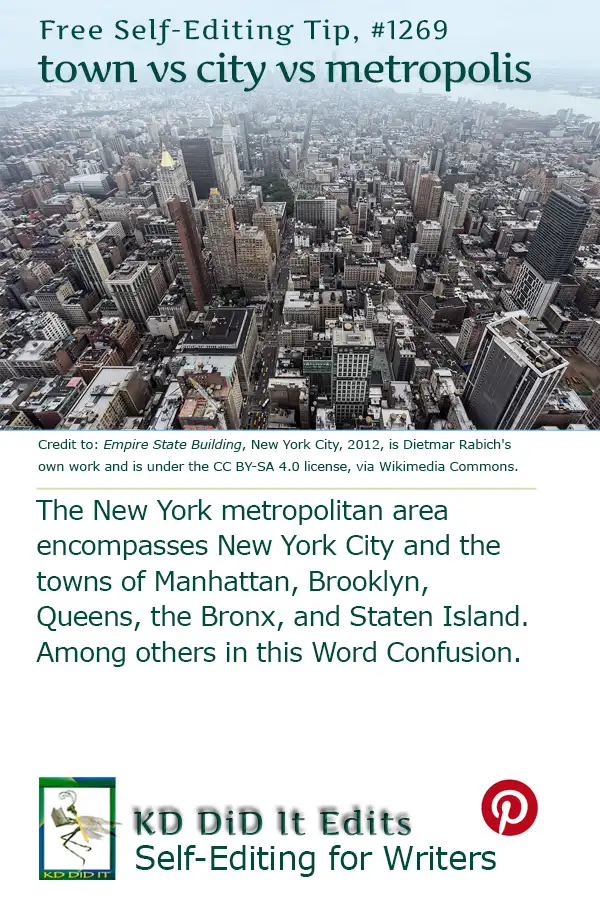Unlike the slew of water posts, there are only two posts on settlement hierarchy in this “word confusion”.
While there are a ton of interpretations on what to call the various sizes and purposes of settlements, the basics come down to an isolated dwelling, a hamlet, a village, a town, a city, and a metropolitan area.
This post focuses on the latter three: town vs city vs metropolitan. Be aware that different parts of the world have their own definitions of town, city, and metropolitan.
A town is generally a mixed-use and/or residential area, usually within commuting distance of a city. It can be split into a small town and a large town. That makes sense as I grew up in a small town with some 30,000 people in it.
A city originally reached this status depending upon its place in the ecclesiastic hierarchy. Today, a city is considered a permanent and densely settled place that focuses on non-agricultural tasks with extensive systems in place for municipal services, land use, manufacturing, and more.
A metropolitan area includes cities, towns, hamlets, villages, you name it. It can include entire counties! An urban area on steroids!
Exploring Later . . .
You may also want to explore “Isolated Dwelling vs Hamlet vs Village“, the first post on settlement hierarchies.
Word Confusions . . .
. . . started as my way of dealing with a professional frustration with properly spelled words that were out of context in manuscripts I was editing as well as books I was reviewing. It evolved into a sharing of information with y’all. I’m hoping you’ll share with us words that have been a bête noire for you from either end.
If you found this post on “Town vs City vs Metropolis” interesting, consider subscribing to KD Did It, if you’d like to track this post for future updates.
| Town | City | Metropolis |
|---|---|---|
 — |
 |
 — |
| Part of Grammar: | ||
| Noun
Plural: towns |
Noun
Plural: cities |
Noun
Plural: metropolises |
An urban area that has a name, defined boundaries, and local government, and that is generally larger than a village and smaller than a city
|
A large town
[the City] Short for City of London
|
The capital or chief city of a country or region
The mother city or parent state of a colony, especially of an ancient Greek colony The chief see of an ecclesiastical province |
| Examples: | ||
| In the US, there are incorporated towns that govern themselves and unincorporated towns that lack their own governance.
Carson was in town. Rachel left to drive back into town. He has moved to town. The Woodlands is planning a town meeting about emergency preparedness. She could appreciate the cultural differences between town and country. The rift between the city’s town and gown resulted in a petition to the college. |
The city of Rome reached one million residents by 133 B.C.
The city council is meeting today. New York City is a vibrant, exciting place. It was panic city in the office today. I’m going up to the City, George. He was a City analyst. |
He preferred the peaceful life of the countryside to the bustle of the metropolis.
By the late eighteenth century Edo had grown to a metropolis with a population of nearly one million. “Nestled on the shores of Lake Michigan, Chicago is an industrious metropolis that’s an exciting place for the LGBTQ community” (LGBTQ-Editor). The Metropolis of France is a diocese of the Ecumenical Patriarchate of Constantinople established in 1963, comprising the Eastern Orthodox parishes and monasteries in France. Pittsburgh is the home of the fifth Byzantine Catholic Metropolitan Church. |
| Derivatives: | ||
| Adjective: townee, townish, townless, townward, towny Adverb: toward, townsward Noun: townee, townie, townlet, townscape, townsfolk, township, townsite, townsman, townperson, townspeople, townswomen, towny |
Adjective: citified, cityfied, cityscape, cityward citywide Adverb: cityward, citywide Noun: citification, citifycation Verb: citify |
Adjective: metropolitan Noun: metropolitan |
| History of the Word: | ||
| Old English tūn meaning enclosed piece of land, homestead, village and is of Germanic origin and related to the Dutch tuin meaning garden and the German Zaun meaning fence. | Middle English from the Old French cite, which is from the Latin civitas, from civis meaning citizen.
Originally denoting a town, it was often used as a Latin equivalent to the Old English burh meaning borough. The term was later applied to the more important English boroughs. The connection between city and cathedral grew up under the Norman kings, as the episcopal sees (many had been established in villages) were removed to the chief borough of the diocese. |
Late Middle English, denoting the see of a metropolitan bishop, is via the late Latin from the Greek mētropolis meaning mother state, from mētēr, mētr- meaning mother + polis (city). |
C’mon, get it out of your system, bitch, whine, moan . . . which words are your pet peeves? Also, please note that I try to be as accurate as I can, but mistakes happen or I miss something. Email me if you find errors, so I can fix them . . . and we’ll all benefit!
Satisfy your curiosity about other Word Confusions on its homepage or more generally explore the index of self-editing posts. You may also want to explore Book Layout & Formatting Ideas, Formatting Tips, Grammar Explanations, Linguistics, Publishing Tips, the Properly Punctuated, Writing Ideas and Resources, and Working Your Website.
Resources for Town vs City vs Metropolis
Some of these links may be affiliate links, and I will earn a small percentage, if you should buy it. It does not affect the price you pay.
Apple Dictionary.com
“City.” Wikipedia. 19 Mar 2024. Accessed 2 Apr 2024. <https://en.wikipedia.org/wiki/City>.
Dictionary.com: metropolis
LGBTQ-Editor. “Chicago: A Midwestern Jewel for the LGBTQ Community.” No Straight News. 11 July 2020. Accessed 2 Apr 2024.
“Settlement Hierarchy.” Wikipedia. 1 Feb 2024. Accessed 27 Mar 2024. <https://en.wikipedia.org/wiki/Settlement_hierarchy>.
Pinterest Photo Credits
Empire State Building, New York City, 2012, is Dietmar Rabich‘s own work and is under the CC BY-SA 4.0 license, via Wikimedia Commons.



Leave a Reply